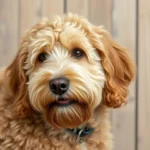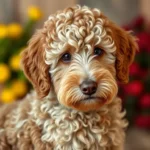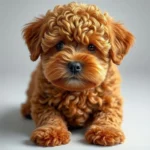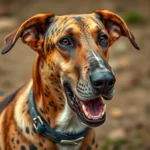
Introduction
Dog breeds captivate millions with their distinctive traits and loyal companionship. Among these beloved breeds, the Basset Hound stands out for its unique attributes and charming demeanor. With their droopy ears, soulful eyes, and a nose that can sniff out anything, Basset Hounds have established themselves as a favorite among dog lovers. In this article, we will explore essential Basset Hound facts that highlight their historical significance, physical features, personality traits, care requirements, and more.
Overview of the Basset Hound
Historical Background
The Basset Hound traces its origins back to France, specifically known as a scent hound developed from the hound family. The breed was initially bred for hunting small game, particularly rabbits and hares, thanks to their exceptional sense of smell and low stature that allowed them to navigate dense underbrush. The name “Basset” derives from the French word “bas,” meaning low, which perfectly describes their short legs.
Over the years, the Basset Hound evolved from a hunting companion into a family pet, garnering a reputation as a gentle and affectionate breed. Their unique physical characteristics and laid-back demeanor have made them a popular choice for various households, particularly in the United States, where they gained significant recognition in the mid-20th century.
Physical Characteristics
Basset Hounds are medium-sized dogs characterized by their distinctive features. Here’s a closer look at their physical traits:
- Size and Weight: Adult Basset Hounds typically weigh between 40 to 65 pounds and stand about 14 to 15 inches tall at the shoulder.
- Coat and Colors: They possess a short, dense double coat, which can come in various colors. The most common combinations include tri-color (black, white, and tan), lemon (light tan and white), and red and white.
- Distinctive Features: Their long, droopy ears are not just for show; they help capture scents from the ground as they sniff around. Their large, expressive eyes often give them a soulful expression, endearing them to many.
Personality Traits
The Basset Hound is known for its gentle and laid-back personality. Here are some key traits:
- General Temperament: Basset Hounds are friendly, affectionate, and good-natured. They thrive on companionship and enjoy being around people and other pets.
- Common Behavioral Traits: Known for their stubbornness, Basset Hounds may not always be the quickest to obey commands. However, their affectionate nature makes training a rewarding experience.
- Compatibility with Families and Other Pets: Basset Hounds are excellent family pets. Their gentle temperament makes them great companions for children, and they generally get along well with other dogs and pets.
Care and Maintenance
Nutrition
Proper nutrition is vital to maintaining the health of Basset Hounds. Here are some key points regarding their dietary needs:
- Recommended Diet: Basset Hounds thrive on high-quality dog food that is specially formulated for their age, size, and activity level. A balanced diet rich in protein, healthy fats, and essential nutrients is crucial.
- Common Dietary Issues: Obesity is a significant concern for Basset Hounds due to their low activity levels. It’s essential to monitor their food intake and provide regular exercise to prevent weight gain.
Exercise Requirements
Despite their laid-back nature, Basset Hounds require regular exercise to maintain a healthy weight and mental stimulation:
- Daily Exercise Needs: They benefit from moderate daily exercise, such as a 30-minute walk or playtime in a secure yard.
- Suitable Activities: Activities like fetch, scent games, and leisurely walks are ideal for keeping them engaged and active.
- Importance of Mental Stimulation: Basset Hounds are intelligent dogs that thrive on mental challenges. Puzzle toys and training exercises can help keep their minds sharp.
Grooming Needs
Maintaining the Basset Hound’s coat and overall hygiene is essential for their well-being:
- Bathing Frequency: Basset Hounds do not require frequent baths; once every few months is usually sufficient unless they get particularly dirty.
- Brushing and Shedding Patterns: Regular brushing, at least once a week, can help manage shedding and keep their coat healthy.
- Ear Care and Dental Hygiene: Their long ears require regular checks for dirt and wax buildup to prevent infections. Additionally, dental hygiene is crucial; regular brushing or dental treats can help maintain oral health.
Health Considerations
Common Health Issues
Basset Hounds are generally healthy, but they are prone to specific health conditions. Understanding these can help owners take proactive measures:
- Genetic Predispositions: Some common health concerns include hip dysplasia, ear infections, and obesity. Regular veterinary check-ups can help catch potential issues early.
- Signs of Common Health Issues: Owners should be vigilant for signs of discomfort, such as limping, reluctance to exercise, or frequent ear scratching, which may indicate underlying health problems.
Regular Veterinary Care
Routine veterinary care is vital for the health of a Basset Hound:
- Importance of Routine Check-Ups: Regular veterinary visits can help detect health issues before they become serious and ensure your pet receives necessary vaccinations.
- Recommended Vaccinations: Core vaccinations include rabies, distemper, parvovirus, and adenovirus. Discuss with your veterinarian the appropriate vaccination schedule for your Basset Hound.
- Preventative Care Tips: Regular flea, tick, and heartworm prevention, along with a healthy diet and exercise routine, can significantly improve your Basset Hound’s quality of life.
Training and Socialization
Basic Training Tips
Training a Basset Hound can be a rewarding experience with the right approach:
- Importance of Early Training: Early socialization and training are crucial to ensuring good behavior and adaptability to various environments.
- Effective Training Methods: Positive reinforcement techniques, such as treats and praise, work well with Basset Hounds, given their affectionate nature.
- Common Challenges with Basset Hounds: Their stubbornness can pose challenges in training. Patience and consistency are key to overcoming these hurdles.
Socialization Strategies
Socialization is essential for Basset Hounds to grow into well-rounded pets:
- Importance of Socialization: Introducing your Basset Hound to various people, pets, and environments helps reduce anxiety and fosters good behavior.
- Recommended Socialization Activities: Puppy classes, playdates with other dogs, and trips to pet-friendly locations are excellent ways to socialize a Basset Hound.
- Tips for Introducing Basset Hounds to New Environments: Take gradual steps when introducing them to new experiences. Use positive reinforcement to encourage calm behavior in unfamiliar settings.
Fun Facts about Basset Hounds
Trivia and Anecdotes
Basset Hounds have a rich history filled with interesting trivia:
- Interesting Historical Trivia: During the 19th century, Basset Hounds were favored by nobility in France, often depicted in art and literature.
- Famous Basset Hounds in Pop Culture or History: The character of “Hush Puppy” in the film “The Beverly Hillbillies” and the iconic mascot for the Hush Puppies shoe brand are both Basset Hounds, showcasing their cultural significance.
Basset Hound Competitions
Basset Hounds have made their mark in the world of dog shows and competitions:
- Overview of Dog Shows and Competitions: Basset Hounds are popular contenders in various dog shows, showcasing their unique appearance and charm.
- Notable Achievements of Basset Hounds in Competitions: They have earned accolades in events such as the Westminster Kennel Club Dog Show, where their distinct look and temperament shine.
Conclusion
The Basset Hound is a breed rich in history and personality, making them a beloved companion for many households. From their unique physical characteristics to their gentle demeanor, they embody the qualities that make dogs cherished members of the family. Understanding the care, health needs, and training requirements of Basset Hounds can help potential owners provide a loving and supportive home. If you’re considering adding a Basset Hound to your family, you’ll discover a loyal and affectionate friend that is sure to bring joy to your life!









